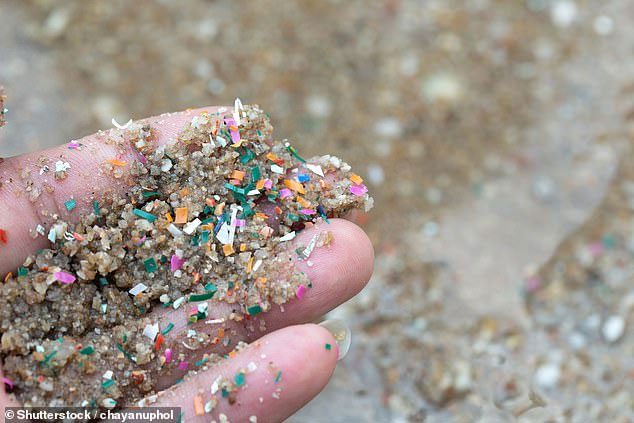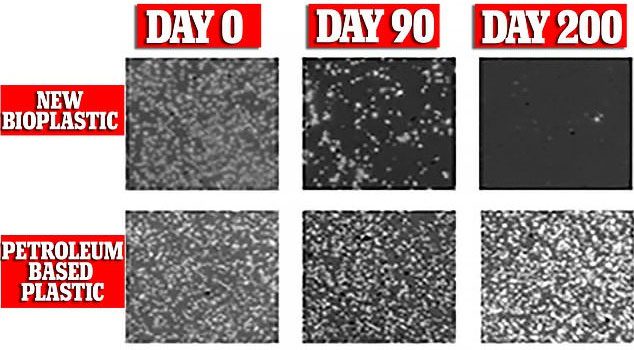Researchers at the University of California – San Diego have developed a plant-based and biodegradable type of plastic.
According to the Daily Mail (UK), the new polymer plastic – also known as bioplastic – is derived from algae. Scientists discovered that 97% of this plastic material biodegrades in landfills within just 200 days. In contrast, only 35% of traditional plastics can decompose in the same timeframe.

Researchers have developed a plastic alternative that does not produce microplastics (shown above). (Photo: Shutterstock).
Importantly, this new plastic will not break down into cancer-causing microplastics.
Microplastics are tiny plastic particles found in common plastic products and have been detected in human arteries, lungs, and placentas. Microplastic particles can take anywhere from 100 to 1,000 years to decompose.
Michael Burkart, a Professor of Chemistry and Biochemistry at the University of California – San Diego and a co-author of the study, stated: “We are just beginning to understand the implications of microplastics. We are trying to find materials to replace existing ones and ensuring that these alternatives will biodegrade at the end of their life cycle, rather than accumulating in the environment. But that is not easy.”
The research team initiated the project by grinding plant-based polymers into micro-particles and using three measurement tools to test whether the bacteria in the mixture could decompose the material.
Scientists employed a respiratory measurement tool to assess the amount of carbon dioxide (CO2) released during the material’s degradation. The results showed that this material met 100% of the industry standards for biodegradability.
The industry standard for biodegradability requires that a product must decompose at least 90% within six months.
Next, the research team compared microplastics from algae with those from petroleum using flotation technology – a method for separating impurities (in solid or liquid form) that are poorly soluble and have low settling abilities from the liquid.
Due to the buoyancy of the plastic, it could be easily separated from the water’s surface. The researchers tested both types of plastics after 90 and 200 days; by the end of the experiment, almost all of the petroleum-based microplastics had been recovered.
Meanwhile, the researchers only recovered 32% of the plant-based microplastics after 90 days and 3% after 200 days, indicating that 97% of the tested material had biodegraded.
The final step was to detect the presence of monomers – the small particles that make up the plastic – to verify that the polymers had decomposed back into the original plant materials used to create them.

Decomposition time of the new bioplastic and petroleum-based plastic. (Photo: Daily Mail).
Stephen Mayfield – another co-author of the study, Professor at the School of Biological Sciences and co-founder of Algenesis – stated that this material is the first type of plastic proven not to produce microplastics during use.
“This is not just a sustainable solution for the end-of-life products and our overloaded landfills. This is truly a health-safe plastic,” he noted.
This new research marks an important advancement in efforts to eliminate toxic microplastics from the environment – which can cause heart attacks, certain cancers, reproductive issues, and memory loss.
Some researchers and public health experts have also expressed concerns that exposure to microplastics could result in low birth weights for newborns.
Recently, microplastics have gained significant public attention as scientists have discovered their widespread presence in human daily life. These tiny particles have been found almost everywhere on the planet – from the deepest part of the Earth, the Mariana Trench, to the summit of Mount Everest.
In 2016, three professors at the University of California – San Diego transformed algae into a type of fuel in pursuit of creating the first biodegradable shoes.
The research team successfully produced a type of polymer plastic from algae named TPU-FC1 and launched the first polyurethane shoe sole made from fossilized algae oil in 2022.
Plastic made from fossilized algae oil could become the best option for biodegradable products in the future.
The research team also revealed that they have collaborated with an engineering team to use this new bioplastic in the production of mobile phone cases.



















































